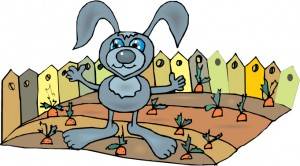Simple living is something of an oxymoron.
Everyone who has tried to be self sufficient knows that the self sustainable life is anything but simple when you first attempt to grow a green thumb.

I wish I had access to a guide to the simple life when I first started out on the path of frugal living. It would have saved many a mistake – but then I guess I wouldn’t have so many war stories to tell my grandchildren!
The Homesteading Guide is designed to help you answer such questions as:
- How to be frugal?
- How to be self sustainable?
- How to become self sufficient?
- How to go green?
- How to live a simple life?
- How to live cheap?
- How to save more money?
… without you having to make the same errors I made.
The Benefits Of Urban Homesteading
 1. Health Benefits:
1. Health Benefits:
There are many health benefits to homesteading. You can grow your own food that is not genetically modified, nor does it need to be drowned in chemicals. Using such methods as understanding symbiotic planting it is possible to virtually eliminate the need for sprays.
By producing your own healthy plant crop it also gives you the option of creating your own preserves. The high level of chemicals in food production is only matched by the high level of preservative and coloring chemicals used in store bought processed food. In societies where there are not this high dependency on chemical processing many of our modern diseases are non-existent.
2. Frugal Living Benefits:
Living the frugal and simple life has its own rewards. Apart from the health benefits of a less stressful lifestyle there are other advantages also.
When you stop trying to keep up with the material possessions of the neighbors and Western society in general you have more time to relax. Too many people get caught up in this world of consumerism where having the latest car is essential even if it means working an extra 20 hours a week to meet the repayments. This high stress compulsion to clutter our lives with material possessions means we rush through life without taking the time to grow relationships and enjoy the time we have.
There is a lot to be said for the simple life that frugal living allows. Heart disease and ulcers are some of the by-products that can be avoided by simplifying your life. While stress is bad for your health, an honest days hard work has been shown to increase life expectancy.
3. Self Sufficiency Benefits For The Planet:
Not only is there a sense of satisfaction in an honest days work homesteading, there is a benefit that reaches well beyond ourselves. The modern way of intensive cropping is destroying the planet. Our quest for the perfect carrot to go with our perfect pea and spot free potato is destroying the environment.
We use herbicides to control unwanted plants, and insecticides to control unwanted insects, and genetic modification to perfect the size and shape of our produce. All this creates a massive imbalance in the environment. Bees that are required for pollination are collateral damage in the war against the caterpillar, and stream life that feeds a food chain stretching to the sea is destroyed by runoff chemicals.
Homesteading is much more low impact and natural way of producing food. By correctly choosing plants in your garden you are able to manage insects and disease without the need for damaging chemicals. Putting up with the occasional spot on your fruit and vegetables allows you to grow natural (not genetically modified) strains of plants that are capable of reproduction and resistant to many of the diseases that require sprays.
4. Living Off The Grid In A Grid Dependent World:
 More and more we are encouraged to become “grid dependent.” Everything from cooking utensils, toys, and even our food is reliant on our being connected to the grid. Our knives are electric, our cars are going electric, and even our beds are electric.
More and more we are encouraged to become “grid dependent.” Everything from cooking utensils, toys, and even our food is reliant on our being connected to the grid. Our knives are electric, our cars are going electric, and even our beds are electric.
This all sounds very appealing when they explain it in the advertising brochure or Governmental legislation propaganda. There are good reasons to electricity over some of the other forms of fuel. However, there are also good reasons not to become entirely grid reliant and we see those in the event of emergencies and national disasters.
The death toll in a natural disaster is often greatly inflated when people who rely on electricity for all their essential services such as heating and cooking suddenly find themselves unplugged from the grid.
Of course, there are other benefits to producing your own energy as well – such as cost savings and comparatively small environmental footprint that home generation verses hydro-scheme or nuclear power have on the environment.
Surviving Simple Living Day One
Don’t burn your britches on the first day. What most manuals don’t tell you is that underneath the camel skin clothes and the green thumb of a seasoned homesteader are many callouses.
It takes time to learn the best way to manage your crops and animals. Do not let the ideal lifestyle become a noose around your neck in the pressure to achieve it in the first week. Burn out is probably the reason many people who start out on the simple living lifestyle give up within the first 2 years (or is it that they have literally set fire to their dreams?).
Crop failures, animals dying, and cold showers are all to be expected in your first couple of years – although the glossy brochures don’t usually tell you this. I repeat that the simple life is not the easy life. However, I hope we can help you achieve your dream without too much trauma with the aid of the Homesteading Guide.

